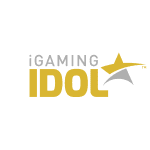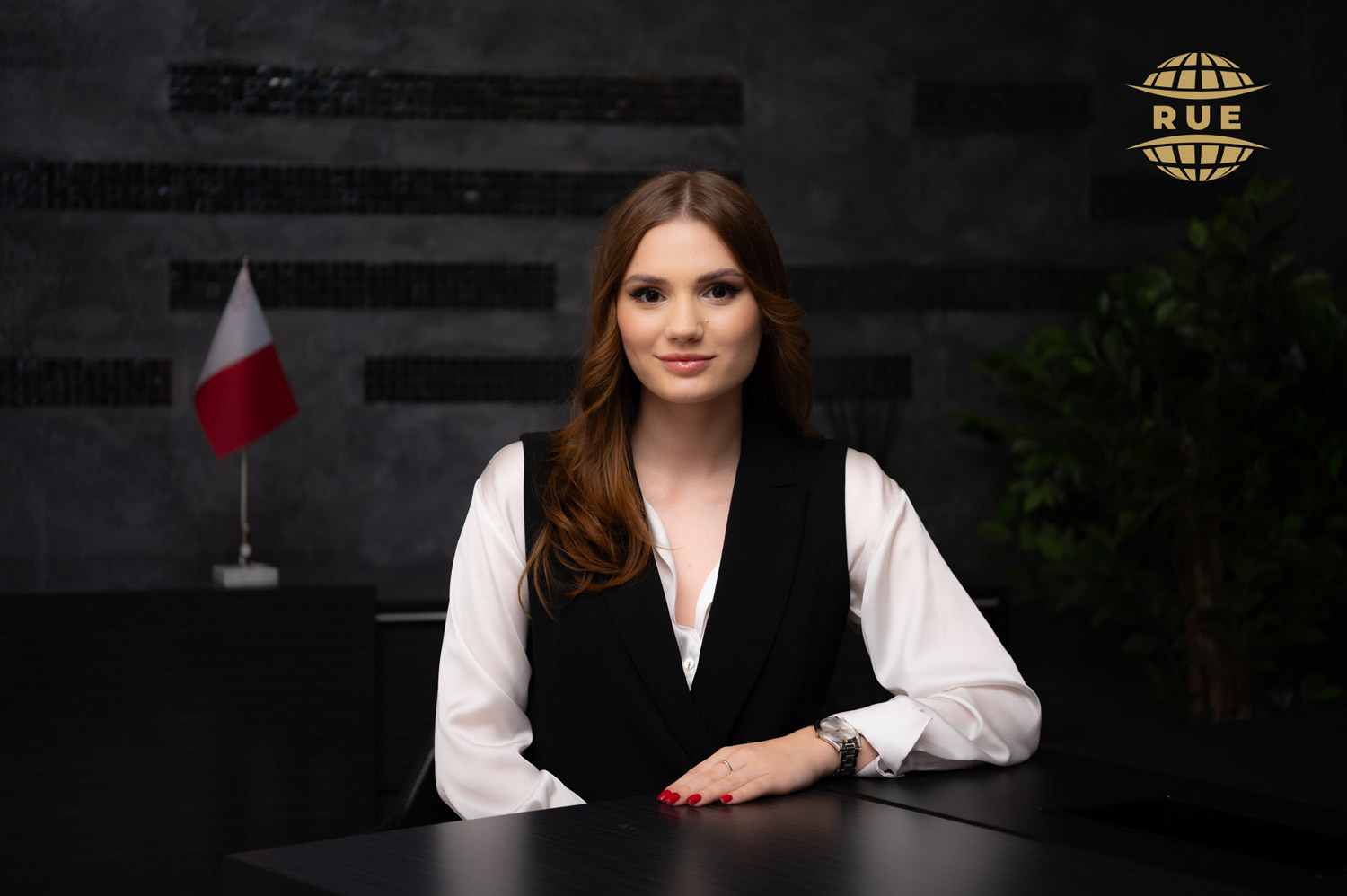Malta Gambling License 2025
Malta is recognized among gambling entrepreneurs as one of the most trusted jurisdictions capable of providing a regulatory framework for such businesses operating in the fields of gambling activities: remote gaming, sports betting, amusement games, casino gaming, gaming devices, and different types of lotteries. Such a reputation has been enjoyed by the Maltese gambling industry since it was legalized and since then has constantly evolved: first, by responding to the changing needs of the industry; and second, by building on existing know-how. It provides the regulatory clarity, good business infrastructure and governmental support while ensuring that the market participants are treated fairly and their safety is guaranteed.
|
PACKAGE «COMPANY & GAMBLING LICENSE IN MALTA» |
100,000 EUR |
Application for a remote gaming license within Malta Gaming Authority
- Company formation in Malta
- Assistance in the formation and declaration of the authorized capital of the company
- Collection and drafting required documentation and application forms
- Drafting business plan (excluding financial projections)
- Drafting company’s policies required by Malta Gaming Authority
- Drafting technical requirement documents
- Review of online content from a legal perspective
- General consultation on the license and application
- Selection of employees for key functions
- Malta license application state fee (€5,000)
Advantages of Malta Gambling License

Malta is a free-market economy that offers all the advantages of a handy and reputable EU jurisdiction, but with lower operational costs. If you are looking for the way to enter the EU market, including the most prosperous countries, bear in mind that Malta’s gaming license offers EU passporting rights, allowing licensees to offer gaming services in other jurisdictions of the EEA. That means you will not need to establish a physical office branch and apply for a new license in every country of EEA where you would wish to conduct your business. So, long as you hold Malta’s gaming license, it will be enough to notify the relevant national financial authorities, which is cheaper than obtaining a license in more wealthy European jurisdictions.
The Gaming Tax in Malta is only 5%, levied on the gaming revenue of the operator derived from the gaming service provided during a year. Entrepreneurs involved in the gambling business have more than 70 international agreements for avoidance of double taxation, which guarantee that the income from the gambling business is not to be taxed by two different countries. The Withholding Tax is exempted on dividends, interest, royalties, as well as proceeds in some instances. Although generally, companies are liable to Corporate Income Tax at a rate of 35%, it is possible for non-resident shareholders to get a refund of most of this tax, which substantially reduces the effective tax rate. Depending on such factors as the type of the company’s income, the tax can be reduced to 0-10%.
Malta’s companies can also take advantage of the exemption from the audit. For instance, an exemption from audit may be granted to a Private Limited Liability Company (Ltd.) provided the maximum annual turnover does not exceed 80,000 EUR or a proportional amount if the accounting period is other than 12 months and the shareholders of the company are considered qualifying shareholders. This tax exemption is relatively easy to claim – an application needs to be filed with the Malta Business Registry (MBR) within 6 months from the end of the accounting period to which the exemption is supposed to relate.
Malta Regulations on Gambling
The applicable Maltese law refers to all gambling and gaming activities as “gaming”. According to the Gaming Definitions Regulations 2018, gaming refers to “an activity comprising of one of the following: participating in a game of chance, participating in a game of skill; making a gaming supply; and/or providing a gaming service.” An operator shall be considered to provide a gaming service when it is making available a game to players for direct or indirect solo or joint participation as an economic activity.
The Maltese Gaming Industry is mainly regulated by the Malta Gaming Act of 2018. This recognises the need to ensure that the gaming sector serves the public interest, along with the promotion of sustainable gaming, economic growth, innovation, and Malta as a centre of excellence and expertise for gaming-related competencies. It also covers gaming authority matters, audit, protection of minors and other vulnerable persons, and responsibilities of players.
The following subsidiary legislation comes under the Gaming Act of 2018 and, accordingly, it gives regulatory clarity to:
- Gaming Authorisations Regulations
- Gaming Commercial Communications Regulations
- Gaming Compliance and Enforcement Regulations
- The above-mentioned Gaming Definitions Regulations
- Gaming Player Protection Regulations
- Gaming Premises Regulations
- Gaming License Fees Regulations
- Gaming Tax Regulations
- Social Causes Fund Regulations
- Retention of Data MGA Regulations
Under the Malta Gaming Act 2018, the Malta Gaming Authority is responsible for regulating various sectors of gaming, which include land-based and remote sectors of gaming. The Authority ensures that licensed gaming operation results are fair and transparent to all players, suppresses crime and corruption, detects money laundering and terrorist financing, and protects the vulnerable members of the society.
The MGA carries out, amongst others, the following regulatory activities, among others:
- Review regularly all regulated practices and operations as well as the performance of the gaming sector;
- Give the public the relevant information and guidance;
- Assure that advertising regarding gaming services is fair and responsible;
- Receive and investigate complaints from players and assist and promote timely, fair, and competent resolution of disputes between players or players and operators;
- Require, obtain, compile, and maintain record of all data relevant to;
- Ensure the suitability and appropriate competence of persons carrying on gaming business;
- Grant any license, approval, recognition, or other authorization for gaming business activities;
- Deter, detect, and secure the prosecution of any offense against the regulations;
In accordance with the responsible gaming goals of the Gaming Player Protection Regulations, a gaming operator shall at all times provide sufficient proof to the MGA to demonstrate that the below-mentioned goals are met in the manner so prescribed by the MGA:
- Adequate controls, policies, and procedures are in place to prevent gaming by minors;
- Adequate controls, policies, and procedures are in place to protect vulnerable persons;
- All players’ interests must be sufficiently protected and information provided to the players regarding any resource they might have if they are in disagreement with any decision made by the competent authority;
- All information that is relevant to the gaming service must be provided to the players;
- Information related to responsible gaming shall be easily available to players;
- Tools should be provided to help players and others have control over their usage of the gaming services and also protect themselves from the effects of problem gaming;
- Advertising and marketing activities concerning the gaming service should be conducted fairly and in a manner that is in compliance with the Gaming Commercial Communications Regulations and any other applicable regulatory instrument or law.
Most of the gaming operators wanting to get licensed in Malta should also take heed of the Prevention of Money Laundering Act, 1994, and the Prevention of Money Laundering and Funding of Terrorism Regulations, 2018, inasmuch as they will be required to create internal policies, amongst others, for the combat and prevention of money laundering and terrorist financing. The regulations include know-your-customer policies, reporting suspicious activities, and the performance of a business risk assessment. It should be the MGA’s responsibility to collect, process and analyze relevant data required in order to enforce the regulations. Malta Gaming Authority – licensee register












Malta
Capital |
Population |
Currency |
GDP |
| Valletta | 519,562 | EUR | $32,912 |
Malta Gaming Licenses Types
A license is due whenever a Maltese or EU/EEA Company intends to offer a gaming service from Malta, to a Maltese person or through a Maltese legal entity. It is under the MGA’s authority to issue and renew Malta’s gaming licenses.
Below are Malta’s gaming licenses types:
- Gaming Service license
- A business-to-consumer license to offer or carry out a gaming service
- Critical Gaming Supply licence
- A business-to-business (B2B) licence to supply and manage the material elements of a game
- A business-to-business (B2B) licence to supply and manage the software, whether as a standalone or as part of a system, to generate, capture, control, or otherwise process any essential regulatory record and/or the supply and management of the control system itself on which such software resides
In the Gaming Definitions Regulations, 2018, “critical gaming supply” or “critical supply” refers to a material supply that is indispensable in determining the outcome of a game or games forming part of the gaming service, and/or an indispensable component in the processing and/or management of essential regulatory data.
Below are the license types for B2C and B2B:
| Type of Game | Description |
|---|---|
| Type 1 | Games of chance played against the house with the outcome determined by a random number generator (RNG); it includes casinos, slots, scratch cards, lotteries, secondary lotteries, and virtual games. |
| Type 2 | Games of chance played against the house through a Matchbook, including fixed-odds betting. |
| Type 3 | Games played in a peer-to-peer manner (player vs. player), which include poker, betting exchanges, and bingo. |
| Type 4 | Controlled skill games, including fantasy sports betting. |
The following are the prerequisites if a game is to be licensable in compliance with the framework described above:
- A stake to enable participation
- The predominance of chance
- A prize of money or money’s worth
GAMBLING LICENSE IN MALTA
| Period for consideration |
7–12 months | Annual fee for supervision | 10,000 – 25,000 € |
| State fee for application |
5,000 € |
Local staff member | Required |
| Required share capital | 40,000 – 240,000 € | Physical office | Required |
| Corporate income tax | 5 % | Accounting audit | Required |
Blocked zones for Malta
Red zones for Malta
Annual License Fees
In terms of the Gaming License Fees Regulations, licensees are obliged to pay the compliance contribution payable for and in respect of each and every license period, and the non-refundable fixed annual license fee of, payable in advance for the 12 running months following the date of the issuance of the license, and every anniversary thereafter during the duration of the license.
Licenses are payable in advance and non-refundable on an annual basis, and sometimes differ according to the license type:
- Gaming Service license
- Type 1-3 – 25,000 EUR
- Type 4 – 10,000 EUR
- Critical Gaming Supply license
- Operators supplying and managing the material elements of a game
- If the company’s annual revenue doesn’t exceed 5 mill. EUR – 25,000 EUR
- If the company’s annual revenue doesn’t exceed 10 mill. EUR – 30,000 EUR
- If the company’s annual revenue exceeds 10 mill. EUR – 35,000 EUR
- If the company has a Type 4 license – 10,000 EUR, irrespective of the annual revenue
- Businesses supplying and managing software to process regulatory records, etc.
- If the company’s annual revenue doesn’t exceed 1 mill. EUR – 3,000 EUR
- If the company’s annual revenue exceeds 1 mill. EUR – 5,000 EUR
How to Establish a Gambling Company in Malta
You are supposed to set up a local company first before making your application for a gaming license in Malta. The incorporation process of a Maltese company is relatively fast, considering that all the necessary information and documents are available. Among the most frequent legal types of a business in Malta, one finds a Private Limited Liability Company-Ltd. You can register a new company within 3 months and even entrust the process to an attorney by signing a power of attorney if you don’t want to travel to Malta.
Requirements of a Private Limited Liability Company: Ltd.
- The name must end with the words “Private Limited Company” or the word “Limited” or its abbreviation “Ltd”
- At least one company director
- A company secretary
- 1-50 shareholders not necessarily resident in Malta
- The holders of the minimum authorized capital, pertaining to gaming legislation
- A Maltese registered office address
To incorporate a new company in Malta, you should:
- Check for availability and reserve a unique and compliant company name – reservation is valid for 3 months
- Find office space in Malta and receive a legal address where Maltese authorities will deliver legal documents.
- Hire a company director, secretary, and an AML officer.
- Open a local bank account.
- Transfer minimum share capital required for your type of gaming activities.
- Pay company registration fees – 245-1,750 EUR, depending on the value of authorized share capital.
- Application for company registration along with the necessary documents to the MBR
- Certificate of registration from the MBR
- Company registration with the Commissioner for Revenue for tax purposes.
Make sure you have on hand the following documents to be submitted:
- Memo of Association
- Articles of Association
- Notarized photocopies of passport of the shareholder/s and director/s
- Form BO1: Contains information about the identification of the company’s beneficial owners.
- Proof of locally registered office address
- Proof of transferred share capital
Advantages
Reputation as a reliable gambling jurisdiction
Over 70 international agreements on the elimination of double taxation
4 types of different gambling licences
Possibility to apply fully online
Requirements for License Applicants

The Malta gaming licensing framework has been set up according to the principle of open window, which in simple words means an unconditional number of licenses that are allowed to be granted by the authority, having no restrictions concerning the time limit for the receipt of license applications on the part of gaming operators. Only legal persons established in Malta or the EU/EEA, with all business operations and, where applicable, game servers located in Malta, can apply for and hold a gaming licence granted by the MGA.
If the applicant is a corporate body, it may apply for a licence either on behalf of itself only or on behalf of its corporate group. In the case of an application on behalf of a group, all references in the relevant regulations to an applicant refer to each and all members of the corporate group, and upon granting such license, each member of the corporate group and all of them jointly and severally are considered a licensee. The minimum share capital in any one of the entities forming part of the licensee should be held by companies applying on behalf of or a group.
A Licensee Must Have the Following Minimum Share Capital upon Application for the Registration of a Gaming Company:
- Gaming Service license
- Type 1 and Type 2 – at least 100,000 EUR
- Type 3 and Type 4 – at least 40,000 EUR
- Critical Gaming Supply licence – at least 40,000 EUR
- Companies with several kinds of the aforementioned licences are required to meet cumulatively the above share capital requirements whose cap is 240,000 EUR.
Owners of a Gaming Service licence who provide Type 1, 2, and 3 games are bound to fulfill the AML/CFT requirements that by decree prescribe the following rules, inter alia:
- Appointment of an AML officer approved by the MGA through holding a Key Function Holder (AML) license and also approved by and registered with the FIAU.
- Establish the internal AML/CFT procedures and policies in respect of the detection and reporting of activities relevant to money laundering and terrorist financing.
- Determine the CDD and KYC procedures.
Gaming license applicants are required to prepare the following documents:
- Incorporation documents
- Notarized copies of passports for all owners
- A criminal record certificate (no more than 3 months old)
- Proof of the passed Fit and Proper Test
- Original bank references of all shareholders (no more than 3 months old)
- A detailed business plan
- A compliance and software audit
- Details of all gaming software used
- Third-party agreements
The Process of Applying for a Gambling License in Malta
Applications for a gaming licence are to be submitted vis-à-vis the MGA’s Licensee Portal, by following the New Licence Application option. Applicants may apply by signing into the Portal and following the process steps provided. The timeline within the Portal allows users to track the status of their requests in real-time for efficiency and transparency. The entire process may take 7-12 months, depending on the quality of the application. Any incomplete applications are set to a one-time ‘incomplete’ status for 60 days. If a complete application isn’t re-submitted within this period, the authority rejects and closes the application off.
The major milestones of the application process are as follows:
- The applicant completes the Fitness and Properness Test and AML due-diligence procedures
- The applicant pays the one-time non-refundable license application fee, which is 5,000 EUR for all license types
- The applicant uploads all the relevant documents on the MGA’s Licensee Portal
- Gaming license applications are immediately assigned to the Authorisations team; an applicant gets an official confirmation email acknowledging the receipt of an application
- The applicant is invited to hold a systems audit in a staged environment whereby the actual games that would be offered and the entire technical setup is audited by an independent auditor selected by the applicant and approved by the MGA
- Once a positive audit report is submitted to the MGA, the authority issues the awaited gaming license
Licensees have 60 days, from the date of issuance of the new licence, to commence operation. Though a licence is not required in advance of the commencement date, all licence fees, compliance contributions, and Gaming Tax are payable commencing on the date of issuance of the licence. In order to commence operation, the licensee must submit a Declaration of Go-Live application no less than 2 days prior to the go-live date declared therein. The application may be accessed via the Licensee Portal.
Online Poker License in Malta
Malta is one of the biggest gambling jurisdictions in Europe and provides really favorable conditions for the registration and operation of gambling games, including poker. A legal system of this country, stable economy, and completely transparent legislation make Malta attractive to online gambling operators. In this article, we would like to discuss the process of getting a poker license in Malta, covering all major requirements and steps.
Why You Need a Maltese Poker License
Advantages of the Malta Gaming Authority license include a number of favorable features such as:
- Trust of players: An MGA license serves as proof of quality in the gambling market.
- Operating within the EU borders: this license allows activity within the European Union
- Tax benefits: Malta has quite an attractive tax system for this business
The Process of Obtaining a Poker License in Malta
| Step | Details |
|---|---|
| Document Preparation | Documents to be prepared at this stage are the following: Business Plan:Description of a business model, target audience, marketing strategy; Proof of financial stability: Information on financial resources necessary for sustaining the operation should be given; Software documents: Confirmation of poker software used, its adequacy, and integrity; Information about management and owners: Full information about key persons of the company. |
| Application to MGA | Once ready, the documents are to be filed along with an application submitted to the Malta Gaming Authority. In other words, the relevant forms are to be filled out, along with the prescribed fees being covered. |
| Verification and Assessment of the Application | The MGA verifies and scrutinizes filed documentation and assesses the company’s conformity with the requirements set forth by the regulator, which in certain cases may include safety issues, analyses of market strategies, and financial strength. |
| Testing the Software | Testing of the poker software is the minimum requirement for the software to pass the MGA technical and legal standards, and it needs to be demonstrated that it can be trusted in a stated manner as being reliable and honest. |
| Obtaining a License and Commencing Operations | Once all checks have been done and the application approved, a gaming license is awarded to the company. At this stage, a company can actually launch its operations and start attracting customers. |
Getting a license for poker in Malta is rather complicated and requires serious preliminary preparation and studying the local legislation. At the same time, an MGA license may provide a serious boost to your gambling business reputation and attractiveness on the international arena. One should be very careful while going through the procedure at hand, possibly with the use of specialized legal and consultancy services.
Regulated United Europe will be delighted to support you in incorporating a company and obtaining a gaming, or gambling, license in Malta. With dedicated legal advisors, tax experts, and financial accountants at your side, you will find the incorporation and application processes easy, frictionless, and transparent.
Also, lawyers from Regulated United Europe provide legal services for obtaining a crypto license in Europe.

“Malta is recognized as a trustworthy location known for its secure commercial landscape, political steadiness, and favourable tax rates. Contact me and I will assist you in establishing your business in Malta.”
FREQUENTLY ASKED QUESTIONS
Are gambling activities licensed in Malta?
Yes, gambling activities are licensed in Malta. With a well-established regulatory network in place, Malta is one of the most trusted jurisdictions for online gambling licensing and regulation. Business activities of license holders include remote gaming, sports betting, amusement games, casino gaming, gaming devices, and various lotteries.
What is the process of getting a gambling license in Malta?
To obtain a gambling license in Malta, applicants must complete the following steps:
- Establish a Maltese company and fulfill certain requirements (having a registered office, appointing directors, providing a business plan etc.);
- Complete the Fitness and Properness Test and AML due-diligence procedures;
- Pay a one-time non-refundable license application fee of 5,000 EUR (the same amount applies for all types of licenses);
- Upload all the relevant documents to the MGA (Malta Gaming Authority) portal;
- Hold a systems audit in a staged environment with an independent auditor.
After completing the evaluation process, the MGA makes a decision on the license application. If approved, the applicant is granted a gambling license.
How does Malta’s gambling license work?
Malta's gambling license allows operators to legally conduct online gambling activities in accordance with the regulations set by the MGA. The license grants authorization to operate various types of online gambling, such as casino games, sports betting, poker, and others. It ensures that the operators adhere to strict standards of player protection, fair gaming, and anti-money laundering measures.
Is getting a license a long process?
The entire process is expected to take 7-12 months, depending on the quality of the application. Any incomplete applications are set to a one-time ‘incomplete’ status for 60 days. If a complete application isn’t re-submitted within this period, the authority rejects and closes the application off.
Can a license be obtained without a bank account?
Opening a bank account is one of the steps applicants need to complete to obtain a gambling license in Malta. This action must be completed whilst establishing a company in Malta.
What is the duration of a gambling license?
As long as gambling license holders adhere to the regulations and account for their activities within the scope required by the MGA, their license doesn’t have validity restrictions. However, all license holders must pay a fixed, non-refundable annual license fee, payable in advance for the 12 running months following the issuance of the license and every anniversary, throughout the duration of the license.
What are the benefits of getting a gambling license in Malta?
Some of the key benefits of choosing Malta for a gambling license are:
- Reputation. Malta is a well-respected jurisdiction in the online gambling industry, known for its robust regulatory framework and high standards of player protection.
- Access to EU Market. A license from Malta allows operators to access the European Union market and operate in multiple jurisdictions within the EU.
- Taxation. Malta offers favourable tax rates for licensed operators, including a low corporate tax rate and the possibility of tax refunds for certain qualifying companies.
- Regulatory Support. The Malta Gaming Authority provides ongoing support and guidance to license holders, assisting them with compliance and actively tackling regulatory issues.
Are there any difficulties of obtaining a gambling license in Malta?
Strict regulatory requirements and thorough evaluation process are some of the main obstacles for most applicants as they’re expected to demonstrate financial stability, integrity, and compliance with all applicable regulations. The MGA's due diligence process is rigorous and raises high standards for player protection and anti-money laundering measures, too.
That said, for reputable operators who are willing to invest the necessary resources, the benefits of obtaining a Malta gambling license can outweigh the difficulties.
Can gambling companies in Malta be owned by non-Maltese residents?
Yes. One of the most common legal structures for gambling businesses in Malta is a Private Limited Liability Company (Ltd). In order to establish this type of company, 1-50 shareholders are needed – all of which can be non-residents.
Are gambling companies in Malta audited?
Yes. However, Malta’s companies can also take advantage of an exemption from the audit. For instance, a Private Limited Liability Company (Ltd) can be exempt from audit if its maximum annual turnover doesn’t exceed 80,000 EUR or a proportional amount if the accounting period is other than 12 months, and the company’s shareholders meet the criteria of qualifying shareholders.
Can a Maltese gambling company have directors who are not local residents?
Yes, a gambling services company in Malta can have a non-resident director. However, it is important to note that certain requirements and obligations must be met by the company and its directors to comply with the regulations set by the MGA.
Are there any measures in place in Malta to prevent money laundering and the financing of terrorism?
Yes. The MGA ensures that licensed gaming operations are fair and transparent to all players, prevents crime and corruption, and detects money laundering and terrorist financing.
Most gaming operators looking to be licensed in Malta must also take note of the Prevention of Money Laundering Act of 1994 and the Prevention of Money Laundering and Funding of Terrorism Regulations of 2018 as they’re required to create internal policies and take other measures to combat and prevent money laundering and terrorist financing.
What is the minimum number of members/directors of a Maltese company?
One of the most common legal structures of a business in Malta is a Private Limited Liability Company (Ltd). Within this company structure, at least one director is required.
What is the size of the authorized capital of a company that can apply for a gambling license in Malta?
The amount of authorized capital depends on the class of gambling license, i.e. the gambling activities a company is conducting.
For a Class 1 license (remote gaming license), the applicant is required to have a minimum issued and fully paid-up share capital of €100,000.
For a Class 2 license (remote betting office license), the applicant should have a minimum issued and fully paid-up share capital of €100,000.
For a Class 3 license (promotion and abetment of gaming from Malta), the applicant must have a minimum issued and fully paid-up share capital of €40,000.
For a Class 4 license (hosting and managing other remote gaming operators), the applicant must have a minimum issued and fully paid-up share capital of €40,000.
What taxes must a Maltese company with a gambling license pay?
Companies holding a gambling license in Malta must pay the following taxes:
- Corporate Income Tax (CIT)
- Gaming Tax
- Value Added Tax (VAT)
- Other taxes and fees: annual license fee, registration fees, administrative charges, social contributions etc.
What is the annual license fee for a gambling company in Malta?
Annual fees strictly depend on the type of license that a company holds.
- Gaming Service license
- Type 1-3 – 25,000 EUR
- Type 4 – 10,000 EUR
- Critical Gaming Supply license
- Operators supplying and managing the material elements of a game
- If the company’s annual revenue doesn’t exceed 5 mill. EUR – 25,000 EUR
- If the company’s annual revenue doesn’t exceed 10 mill. EUR – 30,000 EUR
- If the company’s annual revenue exceeds 10 mill. EUR – 35,000 EUR
- If the company has a Type 4 license – 10,000 EUR, irrespective of the annual revenue
- Businesses supplying and managing software to process regulatory records, etc.
- If the company’s annual revenue doesn’t exceed 1 mill. EUR – 3,000 EUR
- If the company’s annual revenue exceeds 1 mill. EUR – 5,000 EUR
- Operators supplying and managing the material elements of a game
Additional services for Malta
RUE customer support team

“Hi, if you are looking to start your project, or you still have some concerns, you can definitely reach out to me for comprehensive assistance. Contact me and let’s start your business venture.”
“Hello, I’m Sheyla, ready to help with your business ventures in Europe and beyond. Whether in international markets or exploring opportunities abroad, I offer guidance and support. Feel free to contact me!”


“Hello, my name is Diana and I specialise in assisting clients in many questions. Contact me and I will be able to provide you efficient support in your request.”
“Hello, my name is Polina. I will be happy to provide you with the necessary information to launch your project in the chosen jurisdiction – contact me for more information!”

CONTACT US
At the moment, the main services of our company are legal and compliance solutions for FinTech projects. Our offices are located in Vilnius, Prague, and Warsaw. The legal team can assist with legal analysis, project structuring, and legal regulation.
Registration number: 08620563
Anno: 21.10.2019
Phone: +420 775 524 175
Email: [email protected]
Address: Na Perštýně 342/1, Staré Město, 110 00 Prague
Registration number: 304377400
Anno: 30.08.2016
Phone: +370 6949 5456
Email: [email protected]
Address: Lvovo g. 25 – 702, 7th floor, Vilnius,
09320, Lithuania
Sp. z o.o
Registration number: 38421992700000
Anno: 28.08.2019
Email: [email protected]
Address: Twarda 18, 15th floor, Warsaw, 00-824, Poland
Europe OÜ
Registration number: 14153440
Anno: 16.11.2016
Phone: +372 56 966 260
Email: [email protected]
Address: Laeva 2, Tallinn, 10111, Estonia